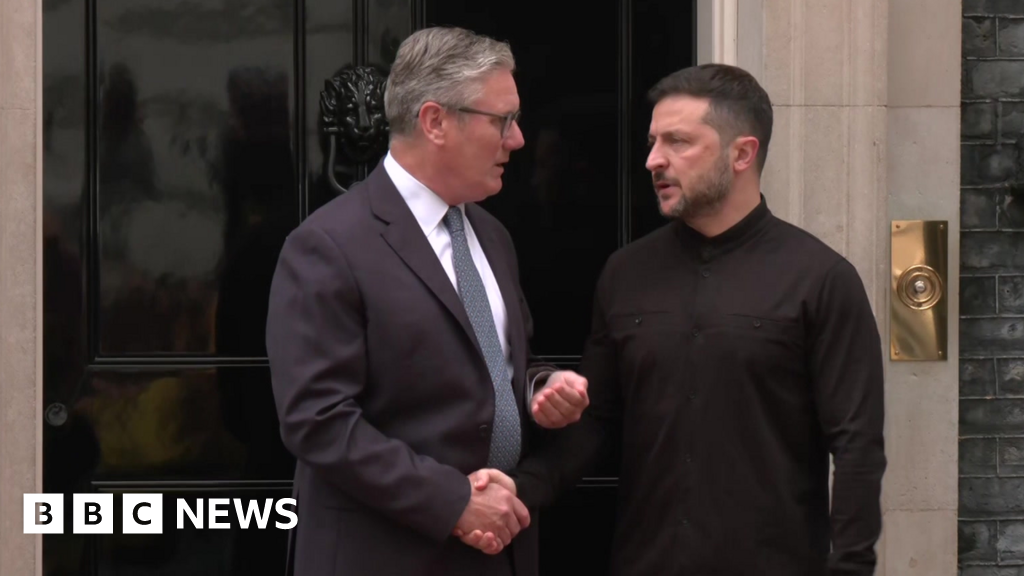Russia Quietly Spreading Fake US News
Introduction
In today's digital age, the spread of disinformation and fake news has become a major concern. And it seems that Russia is quietly churning out fake content posing as US news, according to a recent report by Politico. This is not a new tactic for pro-Russian propaganda groups, but what's concerning is that they are now using high-profile news events to spread their false narratives. And to make matters worse, they are even spoofing reputable news outlets to make their content appear more legitimate.
Key Details
The report by Politico reveals that a pro-Russian propaganda group known as the "Russian Insider" has been using recent events such as the US presidential election and the COVID-19 pandemic to spread disinformation. They have been creating fake news articles and social media posts that mimic reputable news outlets like CNN and The New York Times. This not only confuses readers but also damages the credibility of legitimate news sources. The group also uses bots and fake accounts to amplify their fake content, making it appear more popular and trustworthy.
Impact
The implications of this are concerning, as it shows how easy it is for fake news to spread and influence public opinion. With the rise of social media and the internet, it has become increasingly difficult to distinguish between what is real and what is fake. This not only creates confusion and distrust among the public but also has the
About the Organizations Mentioned
Politico
## Overview Politico is a leading political journalism organization specializing in coverage of politics, policy, and the personalities shaping these arenas in the United States and globally[1]. Based in Arlington, Virginia, Politico delivers news and analysis through a variety of platforms, including a daily newspaper, website, newsletters, podcasts, and digital TV[2][3]. The organization is recognized for its rapid news reporting, in-depth policy analysis, and its influence in political and business circles. ## History Founded in 2007, Politico emerged as a disruptor in political journalism, capitalizing on digital media’s rise to challenge traditional outlets[1][3]. Its founders, including former Washington Post journalists, aimed to provide real-time, insider-focused political coverage. In 2021, Politico was acquired by Axel Springer SE, a major German media conglomerate, marking a significant expansion of its international footprint[2]. ## Key Achievements Politico is best known for breaking major political stories, setting the agenda in Washington, D.C., and beyond. It has built a reputation for scoops on presidential elections, congressional maneuvering, and policy debates. The launch of Politico Pro in 2011 further solidified its niche, offering subscription-based, policy-specific intelligence for professionals in healthcare, technology, and energy sectors[5][6]. This platform is lauded for its nonpartisan, fact-based reporting tailored to policy experts and businesses[5][6]. ## Current Status Today, Politico operates as a global news and information company with offices in Washington, D.C., New York, Brussels, and major U.S. state capitals, reflecting its ambitious expansion[4]. With over 1,000 employees and annual revenues exceeding $245 million, it remains a major player in digital and traditional political media[3]. Politico’s content is distributed across multiple platforms, ensuring wide reach among policymakers, business leaders, and engaged citizens. ## Notable Aspects Polit
CNN
**CNN (Cable News Network)** is a pioneering 24-hour cable news channel founded by media mogul Ted Turner and launched on June 1, 1980. It revolutionized television news by providing continuous, live news coverage worldwide, breaking from the traditional scheduled news broadcasts prevalent at the time[1][3][4][5]. CNN's headquarters are in Atlanta, Georgia, where it remains a major hub for news production. **History and Growth:** CNN was born from Ted Turner’s vision to create the first all-news channel, despite skepticism from industry professionals. Starting with a modest team and resources, it grew rapidly, expanding its reach through cable, satellite, and digital platforms. In 1982, CNN introduced CNN2 (later HLN), the first news channel to use a "wheel" schedule, and in 1985 launched CNN International to serve global audiences[1][4][6]. The network gained significant prominence during events like the 1991 Persian Gulf War, offering real-time battlefield coverage that established CNN as a trusted news source[3][6]. CNN’s website, CNN.com, launched in 1995, was among the first major news websites, marking its early embrace of digital news delivery[6]. **Ownership and Business Evolution:** In 1996, CNN became part of Time Warner (later WarnerMedia), and subsequently Warner Bros. Discovery, reflecting its integration into a major media conglomerate[1][2][6]. The network has adapted to changing media landscapes, including cost-cutting measures announced in 2022 but maintaining a commitment to longform and investigative content[1]. **Key Achievements:** CNN is credited with shaping modern journalism through its live, around-the-clock news coverage and global bureaus. It has earned numerous awards for its reporting and has influenced the creation of similar 24-hour news channels. Its notable anchors and correspondents, such as Bernard Shaw and Christiane Amanpour, have contributed to its authoritative reputation[1]
The New York Times
The New York Times (NYT) is a prestigious American daily newspaper founded on September 18, 1851, in New York City by Henry Jarvis Raymond and George Jones. It has established itself as a global leader in journalism, renowned for accurate, independent, and fair reporting. Its mission is to seek the truth and help people understand the world, a commitment reflected in its deployment of journalists worldwide to cover major historical events, often at personal risk[1][2][4]. Under the stewardship of Arthur Ochs Sulzberger Jr. and the Sulzberger family since 1896, The Times has become the largest local metropolitan newspaper in the U.S. and the third-largest overall, following The Wall Street Journal and USA Today. Its digital presence is substantial, with its website attracting millions of unique visitors monthly, making it the most popular newspaper site in America[6]. Historically, The New York Times has played critical roles in shaping public discourse and policy. Notable achievements include exposing the corrupt Tweed Ring in 1871, landmark reporting on the Vietnam War classified documents in 1971, and the influential 1619 Project in 2019, which reevaluates the legacy of slavery in the U.S.[1][4]. It has earned 112 Pulitzer Prizes, the most of any news organization, underscoring its journalistic excellence[6]. The company has expanded beyond print into digital media, broadcasting, and online services, acquiring assets like About.com and Baseline StudioSystems, and previously co-launching the Discovery Times network[2]. It continues to innovate in news delivery, exemplified by its live COVID-19 briefing that engaged over 1,100 journalists[1]. The Times is distinguished by its iconic motto, “All the News That’s Fit to Print,” adapted for digital as “All the News That’s Fit to Click.” Its comprehensive coverage includes business, technology, science, arts, and politics, making it a vital source for



















